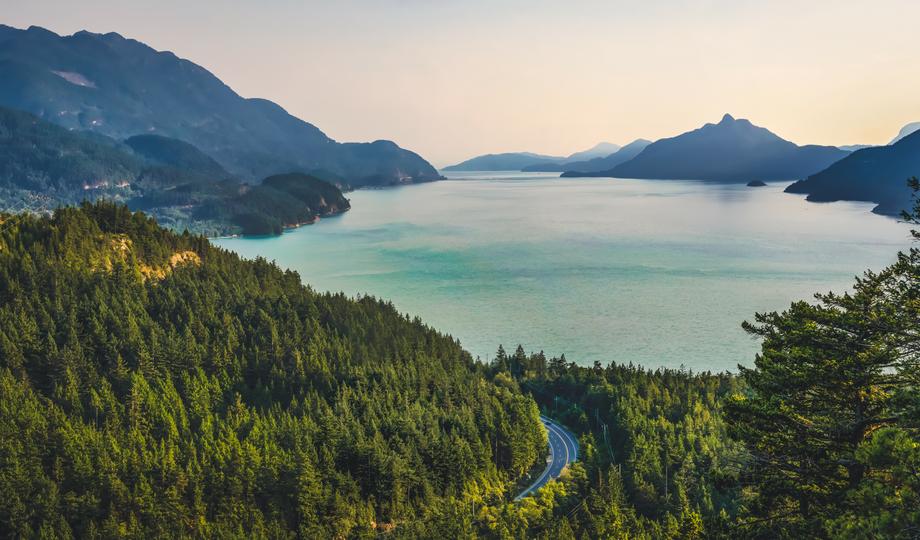Lorem ipsum dolor sit amet, consectetuer adipiscing elit. Aenean commodo ligula eget dolor. Lorem ipsum dolor sit amet, consectetuer adipiscing elit leget dolor. Lorem ipsum dolor sit amet, consectetuer adipiscing elit. Aenean commodo ligula eget dolor. Lorem ipsum dolor sit amet, consectetuer adipiscing elit dolor.
Lorem ipsum dolor sit amet, consectetuer adipiscing elit. Aenean commodo ligula eget dolor.

Lorem ipsum dolor sit amet, consectetuer adipiscing elit. Aenean commodo ligula eget dolor.
At Borealis Bookkeeping, we specialize in providing top-notch bookkeeping services for small to medium-sized businesses. Our dedicated team works diligently to clean up your accounts and offer advisory services, ensuring you achieve your financial goals. With our expertise and personalized approach, we turn financial management into a breeze, allowing you to focus on your business growth.
Lorem ipsum dolor sitope amet, consectetur adipisicing elitip. Massumenda, dolore, cum vel modi asperiores consequatur suscipit quidem ducimus eveniet iure expedita consecteture odiogil voluptatum similique fugit voluptates atem accusamus quae quas dolorem tenetur facere tempora maiores adipisci reiciendis accusantium voluptatibus id voluptate tempore dolor harum nisi amet! Nobis, eaque. Aenean commodo ligula eget dolor. Lorem ipsum dolor sit amet, consectetuer adipiscing elit leget odiogil voluptatum similique fugit voluptates dolor. Libero assumenda, dolore, cum vel modi asperiores consequatur.
Lorem ipsum dolor sitope amet, consectetur adipisicing elitip. Massumenda, dolore, cum vel modi asperiores consequatur suscipit quidem ducimus eveniet iure expedita consecteture odiogil voluptatum similique fugit voluptates atem accusamus quae quas dolorem tenetur facere tempora maiores adipisci reiciendis accusantium voluptatibus id voluptate tempore dolor harum nisi amet! Nobis, eaque. Aenean commodo ligula eget dolor. Lorem ipsum dolor sit amet, consectetuer adipiscing elit leget odiogil voluptatum similique fugit voluptates dolor. Libero assumenda, dolore, cum vel modi asperiores consequatur.
Fact 1
Fact 2
Fact 3
Fact 4
Lorem ipsum dolor sit amet, consectetuer adipiscing elit. Aenean commodo ligula eget dolor. Lorem ipsum dolor sit amet, consectetuer adipiscing elit leget dolor.
Lorem ipsum dolor sit amet, consectetuer adipiscing elit. Aenean commodo ligula eget dolor. Lorem ipsum dolor sit amet, consectetuer adipiscing elit leget dolor.
Lorem ipsum dolor sit amet, consectetuer adipiscing elit. Aenean commodo ligula eget dolor. Lorem ipsum dolor sit amet, consectetuer adipiscing elit leget dolor.

Lorem ipsum dolor sit amet, consectetuer adipiscing elit. Aenean commodo ligula eget dolor. Lorem ipsum dolor sit amet.

Lorem ipsum dolor sit amet, consectetuer adipiscing elit. Aenean commodo ligula eget dolor. Lorem ipsum dolor sit amet.

Lorem ipsum dolor sit amet, consectetuer adipiscing elit. Aenean commodo ligula eget dolor. Lorem ipsum dolor sit amet.
We offer a range of services tailored to meet your specific business needs. 1. Account Cleanup: Ensure your financial records are accurate and up-to-date. 2. Monthly Bookkeeping: Regular maintenance of your accounts to keep you on track. 3. Financial Reporting: Detailed reports that provide insights into your business performance. 4. Tax Preparation: Assistance with tax filings to maximize deductions. 5. Advisory Services: Guidance on financial decisions to achieve your goals. 6. Payroll Services: Streamlined payroll solutions for your workforce.
Lorem ipsum dolor sit amet, consectetuer adipiscing elit. Aenean commodo ligula eget dolor. Lorem ipsum dolor sit amet, consectetuer adipiscing elit leget dolor.
Lorem ipsum dolor sit amet, consectetuer adipiscing elit. Aenean commodo ligula eget dolor. Lorem ipsum dolor sit amet, consectetuer adipiscing elit leget dolor.
Lorem ipsum dolor sit amet, consectetuer adipiscing elit. Aenean commodo ligula eget dolor. Lorem ipsum dolor sit amet, consectetuer adipiscing elit leget dolor.
Lorem ipsum dolor sit amet, consectetuer adipiscing elit. Aenean commodo ligula eget dolor. Lorem ipsum dolor sit amet, consectetuer adipiscing elit leget dolor.
Lorem ipsum dolor sit amet, consectetuer adipiscing elit. Aenean commodo ligula eget dolor. Lorem ipsum dolor sit amet, consectetuer adipiscing elit leget dolor.

Lorem ipsum dolor sit amet, consectetuer adipiscing elit. Aenean commodo ligula eget dolor. Lorem ipsum dolor sit amet.

Lorem ipsum dolor sit amet, consectetuer adipiscing elit. Aenean commodo ligula eget dolor. Lorem ipsum dolor sit amet.

Lorem ipsum dolor sit amet, consectetuer adipiscing elit. Aenean commodo ligula eget dolor. Lorem ipsum dolor sit amet.

Lorem ipsum dolor sit amet, consectetuer adipiscing elit. Aenean commodo ligula eget dolor. Lorem ipsum dolor sit amet.

Lorem ipsum dolor sit amet, consectetuer adipiscing elit. Aenean commodo ligula eget dolor. Lorem ipsum dolor sit amet.

Lorem ipsum dolor sit amet, consectetuer adipiscing elit. Aenean commodo ligula eget dolor. Lorem ipsum dolor sit amet.
Lorem ipsum dolor sit amet, consectetur adipisicing elit. Maiores ipsum repellat minus nihil. Labore, delectus, nam dignissimos ea repudiandae minima voluptatum magni pariatur possimus quia accusamus harum facilis corporis animi nisi. Enim, pariatur, impedit quia repellat harum ipsam laboriosam voluptas dicta illum nisi obcaecati reprehenderit quis placeat recusandae tenetur aperiam.
Lorem ipsum dolor sit amet, consectetur adipisicing elit. Maiores ipsum repellat minus nihil. Labore, delectus, nam dignissimos ea repudiandae minima voluptatum magni pariatur possimus quia accusamus harum facilis corporis animi nisi. Enim, pariatur, impedit quia repellat harum ipsam laboriosam voluptas dicta illum nisi obcaecati reprehenderit quis placeat recusandae tenetur aperiam.
Lorem ipsum dolor sit amet, consectetur adipisicing elit. Maiores ipsum repellat minus nihil. Labore, delectus, nam dignissimos ea repudiandae minima voluptatum magni pariatur possimus quia accusamus harum facilis corporis animi nisi. Enim, pariatur, impedit quia repellat harum ipsam laboriosam voluptas dicta illum nisi obcaecati reprehenderit quis placeat recusandae tenetur aperiam.
Lorem ipsum dolor sit amet, consectetur adipisicing elit. Maiores ipsum repellat minus nihil. Labore, delectus, nam dignissimos ea repudiandae minima voluptatum magni pariatur possimus quia accusamus harum facilis corporis animi nisi. Enim, pariatur, impedit quia repellat harum ipsam laboriosam voluptas dicta illum nisi obcaecati reprehenderit quis placeat recusandae tenetur aperiam.
Lorem ipsum dolor sit amet, consectetur adipisicing elit. Maiores ipsum repellat minus nihil. Labore, delectus, nam dignissimos ea repudiandae minima voluptatum magni pariatur possimus quia accusamus harum facilis corporis animi nisi. Enim, pariatur, impedit quia repellat harum ipsam laboriosam voluptas dicta illum nisi obcaecati reprehenderit quis placeat recusandae tenetur aperiam.
Lorem ipsum dolor sit amet, consectetur adipisicing elit. Maiores ipsum repellat minus nihil. Labore, delectus, nam dignissimos ea repudiandae minima voluptatum magni pariatur possimus quia accusamus harum facilis corporis animi nisi. Enim, pariatur, impedit quia repellat harum ipsam laboriosam voluptas dicta illum nisi obcaecati reprehenderit quis placeat recusandae tenetur aperiam.
Lorem ipsum dolor sit amet, consectetuer adipiscing elit. Aenean commodo ligula eget dolor. Lorem ipsum dolor sit amet, consectetuer adipiscing elit leget dolor.
Lorem ipsum dolor sit amet, consectetuer adipiscing elit. Aenean commodo ligula eget dolor. Lorem ipsum dolor sit amet, consectetuer adipiscing elit leget dolor.
Lorem ipsum dolor sit amet, consectetuer adipiscing elit. Aenean commodo ligula eget dolor. Lorem ipsum dolor sit amet, consectetuer adipiscing elit leget dolor.
Join Borealis Bookkeeping today and watch your business thrive!
| Item 1 Lorem ipsum dolor sit amet, consectetur. |
|
| Item 2 Lorem ipsum dolor sit amet, consectetur. |
|
| Item 3 Lorem ipsum dolor sit amet, consectetur. |
|
| Item 4 Lorem ipsum dolor sit amet, consectetur. |
|
| Item 5 Lorem ipsum dolor sit amet, consectetur. |
|
| Item 6 Lorem ipsum dolor sit amet, consectetur. |
| Lorem ipsum dolor sit amet, consectetur. | |
| Lorem ipsum dolor sit amet, consectetur. | |
| Lorem ipsum dolor sit amet, consectetur. | |
| Lorem ipsum dolor sit amet, consectetur. | |
| Lorem ipsum dolor sit amet, consectetur. | |
| Lorem ipsum dolor sit amet, consectetur. |
| Lorem ipsum dolor sit amet, consectetur. | |
| Lorem ipsum dolor sit amet, consectetur. | |
| Lorem ipsum dolor sit amet, consectetur. | |
| Lorem ipsum dolor sit amet, consectetur. | |
| Lorem ipsum dolor sit amet, consectetur. | |
| Lorem ipsum dolor sit amet, consectetur. |
| Lorem ipsum dolor sit amet, consectetur. | |
| Lorem ipsum dolor sit amet, consectetur. | |
| Lorem ipsum dolor sit amet, consectetur. | |
| Lorem ipsum dolor sit amet, consectetur. | |
| Lorem ipsum dolor sit amet, consectetur. | |
| Lorem ipsum dolor sit amet, consectetur. |
| Item 1 Lorem ipsum dolor sit amet, consectetur. |
|
| Item 2 Lorem ipsum dolor sit amet, consectetur. |
|
| Item 3 Lorem ipsum dolor sit amet, consectetur. |
|
| Item 4 Lorem ipsum dolor sit amet, consectetur. |
|
| Item 5 Lorem ipsum dolor sit amet, consectetur. |
|
| Item 6 Lorem ipsum dolor sit amet, consectetur. |
| Item 1 Lorem ipsum dolor sit amet, consectetur. |
|
| Item 2 Lorem ipsum dolor sit amet, consectetur. |
|
| Item 3 Lorem ipsum dolor sit amet, consectetur. |
|
| Item 4 Lorem ipsum dolor sit amet, consectetur. |
|
| Item 5 Lorem ipsum dolor sit amet, consectetur. |
|
| Item 6 Lorem ipsum dolor sit amet, consectetur. |
| Item 1 Lorem ipsum dolor sit amet, consectetur. |
|
| Item 2 Lorem ipsum dolor sit amet, consectetur. |
|
| Item 3 Lorem ipsum dolor sit amet, consectetur. |
|
| Item 4 Lorem ipsum dolor sit amet, consectetur. |
|
| Item 5 Lorem ipsum dolor sit amet, consectetur. |
|
| Item 6 Lorem ipsum dolor sit amet, consectetur. |
| Lorem ipsum dolor sit amet, consectetur. | |
| Lorem ipsum dolor sit amet, consectetur. | |
| Lorem ipsum dolor sit amet, consectetur. | |
| Lorem ipsum dolor sit amet, consectetur. | |
| Lorem ipsum dolor sit amet, consectetur. | |
| Lorem ipsum dolor sit amet, consectetur. |
| Lorem ipsum dolor sit amet, consectetur. | |
| Lorem ipsum dolor sit amet, consectetur. | |
| Lorem ipsum dolor sit amet, consectetur. | |
| Lorem ipsum dolor sit amet, consectetur. | |
| Lorem ipsum dolor sit amet, consectetur. | |
| Lorem ipsum dolor sit amet, consectetur. |
| Lorem ipsum dolor sit amet, consectetur. | |
| Lorem ipsum dolor sit amet, consectetur. | |
| Lorem ipsum dolor sit amet, consectetur. | |
| Lorem ipsum dolor sit amet, consectetur. | |
| Lorem ipsum dolor sit amet, consectetur. | |
| Lorem ipsum dolor sit amet, consectetur. |

Lorem ipsum dolor sit amet, consectetuer adipiscing elit. Aenean commodo ligula eget dolor. Lorem ipsum dolor sit amet.

Lorem ipsum dolor sit amet, consectetuer adipiscing elit. Aenean commodo ligula eget dolor. Lorem ipsum dolor sit amet.

Lorem ipsum dolor sit amet, consectetuer adipiscing elit. Aenean commodo ligula eget dolor. Lorem ipsum dolor sit amet.

Lorem ipsum dolor sit amet, consectetuer adipiscing elit. Aenean commodo ligula eget dolor. Lorem ipsum dolor sit amet.

Lorem ipsum dolor sit amet, consectetuer adipiscing elit. Aenean commodo ligula eget dolor. Lorem ipsum dolor sit amet.

Lorem ipsum dolor sit amet, consectetuer adipiscing elit. Aenean commodo ligula eget dolor. Lorem ipsum dolor sit amet.






Borealis Bookkeeping transformed our financial outlook. Their attention to detail is unmatched.
The team at Borealis helped us clean up our accounts and provided invaluable advice to reach our financial goals.
We trust Borealis with our bookkeeping. Their expertise has made a significant difference in our business.

Lorem ipsum dolor sit amet, consectetur adipisicing elit. Id, ipsum, quibusdam, temporibus harum culpa unde voluptatem possimus qui molestiae expedita ad aut necessitatibus vel incidunt placeat velit soluta a consectetur laborum illum nobis distinctio nisi facilis! Officiis, illum, aut, quasi dolorem laudantium fuga porro amet provident voluptatibus dicta mollitia neque!

Lorem ipsum dolor sit amet, consectetur adipisicing elit. Id, ipsum, quibusdam, temporibus harum culpa unde voluptatem possimus qui molestiae expedita ad aut necessitatibus vel incidunt placeat velit soluta a consectetur laborum illum nobis distinctio nisi facilis! Officiis, illum, aut, quasi dolorem laudantium fuga porro amet provident voluptatibus dicta mollitia neque!

Lorem ipsum dolor sit amet, consectetur adipisicing elit. Id, ipsum, quibusdam, temporibus harum culpa unde voluptatem possimus qui molestiae expedita ad aut necessitatibus vel incidunt placeat velit soluta a consectetur laborum illum nobis distinctio nisi facilis! Officiis, illum, aut, quasi dolorem laudantium fuga porro amet provident voluptatibus dicta mollitia neque!

Lorem ipsum dolor sit amet, consectetur adipiscing elit, sed do eiusmod tempor incididunt ut labore et dolore magna aliqua. Ut enim ad minim veniam, quis nostrud exercitation ullamco laboris nisi ut aliquip ex ea commodo consequat.

Lorem ipsum dolor sit amet, consectetur adipiscing elit, sed do eiusmod tempor incididunt ut labore et dolore magna aliqua. Ut enim ad minim veniam, quis nostrud exercitation ullamco laboris nisi ut aliquip ex ea commodo consequat.

Lorem ipsum dolor sit amet, consectetur adipiscing elit, sed do eiusmod tempor incididunt ut labore et dolore magna aliqua. Ut enim ad minim veniam, quis nostrud exercitation ullamco laboris nisi ut aliquip ex ea commodo consequat.













Lorem ipsum dolor sit amet, consectetur adipisicing elit. Maiores ipsum repellat minus nihil. Labore, delectus, nam dignissimos ea repudiandae minima voluptatum magni pariatur possimus quia accusamus harum facilis corporis animi nisi. Enim, pariatur, impedit quia repellat harum ipsam laboriosam voluptas dicta illum nisi obcaecati reprehenderit quis placeat recusandae tenetur aperiam.
Lorem ipsum dolor sit amet, consectetur adipisicing elit. Maiores ipsum repellat minus nihil. Labore, delectus, nam dignissimos ea repudiandae minima voluptatum magni pariatur possimus quia accusamus harum facilis corporis animi nisi. Enim, pariatur, impedit quia repellat harum ipsam laboriosam voluptas dicta illum nisi obcaecati reprehenderit quis placeat recusandae tenetur aperiam.
Lorem ipsum dolor sit amet, consectetur adipisicing elit. Maiores ipsum repellat minus nihil. Labore, delectus, nam dignissimos ea repudiandae minima voluptatum magni pariatur possimus quia accusamus harum facilis corporis animi nisi. Enim, pariatur, impedit quia repellat harum ipsam laboriosam voluptas dicta illum nisi obcaecati reprehenderit quis placeat recusandae tenetur aperiam.
Lorem ipsum dolor sit amet, consectetur adipisicing elit. Maiores ipsum repellat minus nihil. Labore, delectus, nam dignissimos ea repudiandae minima voluptatum magni pariatur possimus quia accusamus harum facilis corporis animi nisi. Enim, pariatur, impedit quia repellat harum ipsam laboriosam voluptas dicta illum nisi obcaecati reprehenderit quis placeat recusandae tenetur aperiam.
Lorem ipsum dolor sit amet, consectetur adipisicing elit. Maiores ipsum repellat minus nihil. Labore, delectus, nam dignissimos ea repudiandae minima voluptatum magni pariatur possimus quia accusamus harum facilis corporis animi nisi. Enim, pariatur, impedit quia repellat harum ipsam laboriosam voluptas dicta illum nisi obcaecati reprehenderit quis placeat recusandae tenetur aperiam.
Lorem ipsum dolor sit amet, consectetur adipisicing elit. Maiores ipsum repellat minus nihil. Labore, delectus, nam dignissimos ea repudiandae minima voluptatum magni pariatur possimus quia accusamus harum facilis corporis animi nisi. Enim, pariatur, impedit quia repellat harum ipsam laboriosam voluptas dicta illum nisi obcaecati reprehenderit quis placeat recusandae tenetur aperiam.
Lorem ipsum dolor sit amet, consectetur adipisicing elit. Maiores ipsum repellat minus nihil. Labore, delectus, nam dignissimos ea repudiandae minima voluptatum magni pariatur possimus quia accusamus harum facilis corporis animi nisi. Enim, pariatur, impedit quia repellat harum ipsam laboriosam voluptas dicta illum nisi obcaecati reprehenderit quis placeat recusandae tenetur aperiam.
Lorem ipsum dolor sit amet, consectetur adipisicing elit. Maiores ipsum repellat minus nihil. Labore, delectus, nam dignissimos ea repudiandae minima voluptatum magni pariatur possimus quia accusamus harum facilis corporis animi nisi. Enim, pariatur, impedit quia repellat harum ipsam laboriosam voluptas dicta illum nisi obcaecati reprehenderit quis placeat recusandae tenetur aperiam.
Lorem ipsum dolor sit amet, consectetur adipisicing elit. Maiores ipsum repellat minus nihil. Labore, delectus, nam dignissimos ea repudiandae minima voluptatum magni pariatur possimus quia accusamus harum facilis corporis animi nisi. Enim, pariatur, impedit quia repellat harum ipsam laboriosam voluptas dicta illum nisi obcaecati reprehenderit quis placeat recusandae tenetur aperiam.
Lorem ipsum dolor sit amet, consectetur adipisicing elit. Maiores ipsum repellat minus nihil. Labore, delectus, nam dignissimos ea repudiandae minima voluptatum magni pariatur possimus quia accusamus harum facilis corporis animi nisi. Enim, pariatur, impedit quia repellat harum ipsam laboriosam voluptas dicta illum nisi obcaecati reprehenderit quis placeat recusandae tenetur aperiam.
Lorem ipsum dolor sit amet, consectetur adipisicing elit. Maiores ipsum repellat minus nihil. Labore, delectus, nam dignissimos ea repudiandae minima voluptatum magni pariatur possimus quia accusamus harum facilis corporis animi nisi. Enim, pariatur, impedit quia repellat harum ipsam laboriosam voluptas dicta illum nisi obcaecati reprehenderit quis placeat recusandae tenetur aperiam.
Lorem ipsum dolor sit amet, consectetur adipisicing elit. Maiores ipsum repellat minus nihil. Labore, delectus, nam dignissimos ea repudiandae minima voluptatum magni pariatur possimus quia accusamus harum facilis corporis animi nisi. Enim, pariatur, impedit quia repellat harum ipsam laboriosam voluptas dicta illum nisi obcaecati reprehenderit quis placeat recusandae tenetur aperiam.
Lorem ipsum dolor sit amet, consectetur adipisicing elit. Maiores ipsum repellat minus nihil. Labore, delectus, nam dignissimos ea repudiandae minima voluptatum magni pariatur possimus quia accusamus harum facilis corporis animi nisi. Enim, pariatur, impedit quia repellat harum ipsam laboriosam voluptas dicta illum nisi obcaecati reprehenderit quis placeat recusandae tenetur aperiam.
Lorem ipsum dolor sit amet, consectetur adipisicing elit. Maiores ipsum repellat minus nihil. Labore, delectus, nam dignissimos ea repudiandae minima voluptatum magni pariatur possimus quia accusamus harum facilis corporis animi nisi. Enim, pariatur, impedit quia repellat harum ipsam laboriosam voluptas dicta illum nisi obcaecati reprehenderit quis placeat recusandae tenetur aperiam.


Single Room
Lorem ipsum dolor sit amet, consectetur adipisicing elit. Natus, dolores, at, nisi eligendi repellat voluptatem minima officia veritatis quasi animi porro laudantium dicta dolor voluptate non maiores ipsum reprehenderit odio fugiat reiciendis consectetur fuga pariatur libero accusantium quod minus odit debitis cumque quo adipisci vel vitae aliquid corrupti perferendis voluptates.

Double Room
Lorem ipsum dolor sit amet, consectetur adipisicing elit. Natus, dolores, at, nisi eligendi repellat voluptatem minima officia veritatis quasi animi porro laudantium dicta dolor voluptate non maiores ipsum reprehenderit odio fugiat reiciendis consectetur fuga pariatur libero accusantium quod minus odit debitis cumque quo adipisci vel vitae aliquid corrupti perferendis voluptates.

Family Room
Lorem ipsum dolor sit amet, consectetur adipisicing elit. Natus, dolores, at, nisi eligendi repellat voluptatem minima officia veritatis quasi animi porro laudantium dicta dolor voluptate non maiores ipsum reprehenderit odio fugiat reiciendis consectetur fuga pariatur libero accusantium quod minus odit debitis cumque quo adipisci vel vitae aliquid corrupti perferendis voluptates.

Monday
closed
Tuesday
09:00 - 18:30
Wednesday
09:00 - 18:30
Thursday
09:00 - 18:30
Friday
09:00 - 18:30
Saturday
09:00 - 18:30
Sunday
09:00 - 18:30

We are here to assist you with your bookkeeping needs. Reach out to us for any inquiries or to schedule a consultation. Our team is eager to help you achieve your financial goals.

Lorem ipsum dolor sitope amet, consectetur adipisicing elitip. Massumenda, dolore, cum vel modi asperiores consequatur suscipit quidem ducimus eveniet iure expedita consecteture odiogil voluptatum similique fugit voluptates atem accusamus quae quas dolorem tenetur facere tempora maiores adipisci reiciendis accusantium voluptatibus id voluptate tempore dolor harum nisi amet! Nobis, eaque.
Aenean commodo ligula eget dolor. Lorem ipsum dolor sit amet, consectetuer adipiscing elit leget odiogil voluptatum similique fugit voluptates dolor. Libero assumenda, dolore, cum vel modi asperiores consequatur.


Aenean commodo ligula eget dolor. Lorem ipsum dolor sit amet, consectetuer adipiscing elit leget odiogil voluptatum similique fugit voluptates dolor. Libero assumenda, dolore, cum vel modi asperiores consequatur.
Lorem ipsum dolor sit amet, consectetuer adipiscing elit leget odiogil voluptatum similique fugit voluptates dolor.
| Opening Hours | |
|---|---|
| Monday | Closed |
| Tuesday | 10AM - 11PM |
| Wednesday | 10AM - 11PM |
| Thursday | 10AM - 11PM |
| Friday | 10AM - 11PM |
| Saturday | 10AM - 11PM |
| Sunday | 10AM - 11PM |